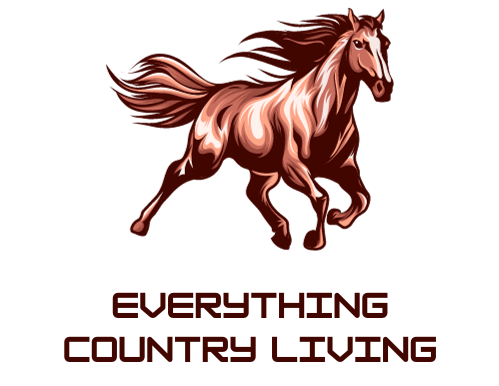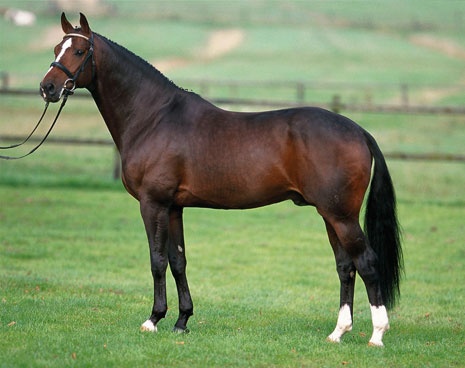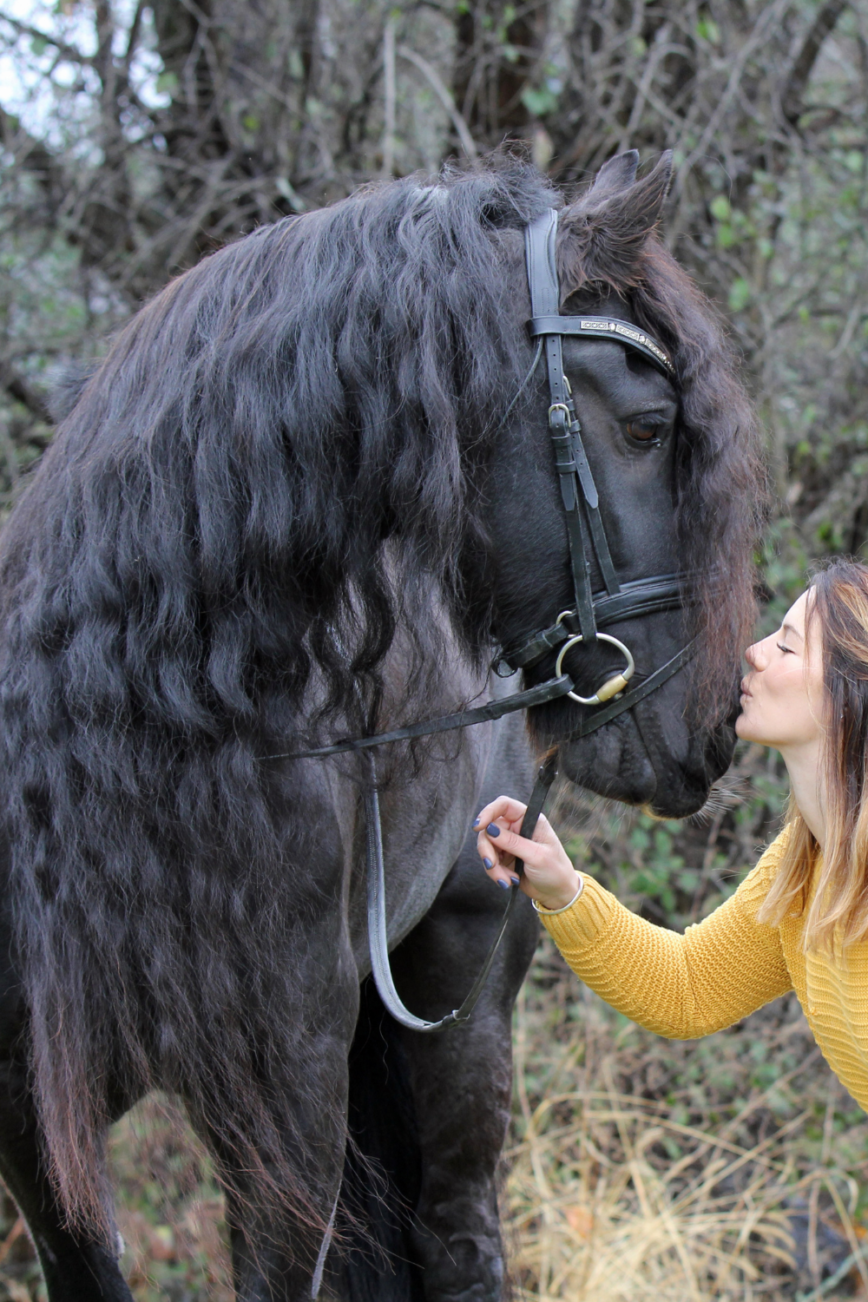
This article will tell you what breeds of horses are cold blooded, and you will learn how to classify horses into cold, warm, hot blooded breeds.
Find out how horses are classified into these categories based on their temperament, conformation, and suitability to different types of jobs.
When categorizing horses as hot, cold, or warmblood, we are essentially classifying various horse breeds based on their temperament, conformation, movement, and the specific tasks they are best suited for.
Cold-blooded horse breeds were selectively bred for strength are calmer and have a lower energy level. They are well-suited for tasks demanding power and sustained effort.


What are coldblooded horses good for?
Cold-blooded horses are typically associated with draft breeds, and are valued for their strength, sturdiness, and calm temperament. These traits make them well-suited for various tasks and activities, including agriculture draft work, logging, pulling a wagon or carriage.
Characteristics of Cold-Blooded Horse Breeds:
a. Calm Temperament: Cold-blooded horses are known for their calm and gentle temperament. They are less reactive compared to hot-blooded horses and are suitable for riders who prefer a more relaxed and steadier ride. Also, the training process is a little slower, but they are less likely to run over you or jump on top of you as quickly as a hot blood horse will.
b. Strength and Endurance: These horses are built for heavy work and possess considerable strength and endurance. Draft breeds like the Clydesdale and Shire are examples of cold-blooded horses known for their power and ability to pull heavy loads.
c. Sturdiness: Cold-blooded horses are generally sturdier and less likely to be injured. They have big hooves and tougher skin. Their physical characteristics make them well-suited for activities that require strength, such as pulling wagons or participating in agricultural work.
d. Slow Maturity: Cold-blooded horses often mature more slowly than their hot-blooded counterparts. This can be an advantage in terms of longevity and durability, as they tend to have longer working lives.
Cold blooded horse breeds
- Percheron
- Belgian Draft
- Clydesdale
- Shire
- Suffolk Punch
- Norwegian Fjord
- Dutch Draft
- Haflinger
- Irish draught
- Ardennais
Hot blooded horses
Hot-blooded horses are specifically bred for speed, have a high energy level that makes them excel at racing and endurance.

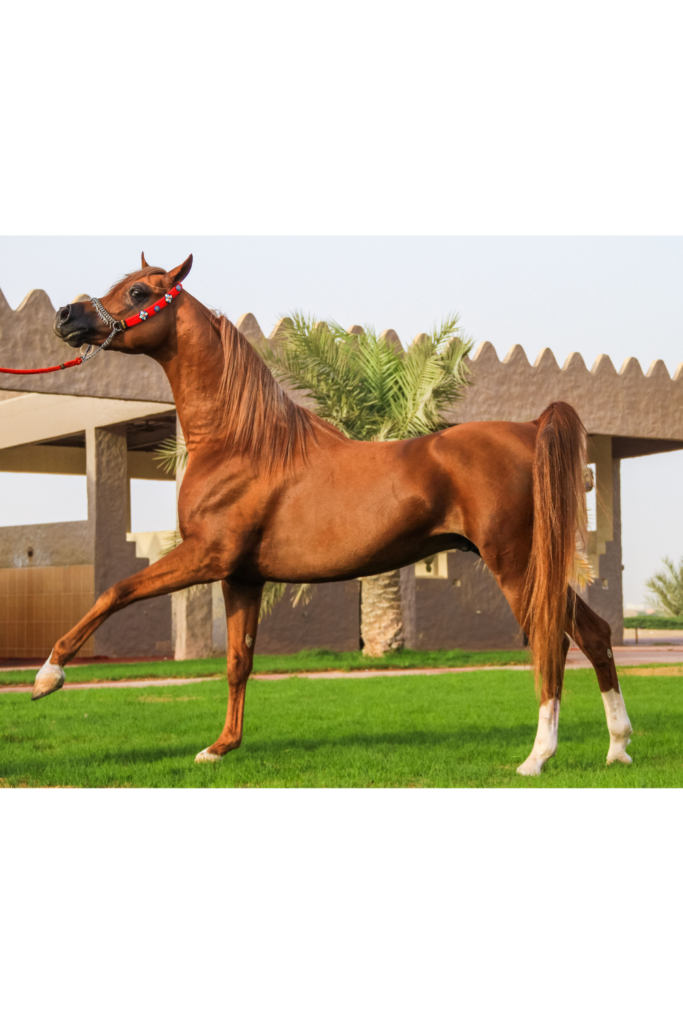
Warmblood horses
Warmblood horses represent a mix of characteristics from both hot and cold-blooded breeds. Bred for versatility, they are adaptable to a variety of tasks, showcasing a balanced mix of energy, strength, and endurance.
How the Horse Classification System Works:
Horses have been companions to humans for centuries, serving in various roles from transportation to sport and recreation. One fascinating aspect of these majestic creatures is their temperament, which can be broadly categorized into hot-blooded, warm-blooded, and cold-blooded. Each category represents a distinct set of characteristics and traits that influence a horse’s behavior, performance, and suitability for different activities.
- Hot-Blooded Horses:
Hot-blooded horses are often associated with high energy, sensitivity, and agility. These horses are typically more spirited and reactive compared to other temperaments. Breeds like the Arabian and Thoroughbred fall into this category. The Arabian, for instance, is renowned for its endurance, intelligence, and fiery disposition. Thoroughbreds, bred for speed and racing, also exhibit the traits of hot-blooded horses. The more your horse resembles a hot blood breed, the more experienced you should be as a trainer and rider.
Characteristics of Hot-Blooded Horses:
a. High Energy: Hot-blooded horses are known for their abundance of energy. They possess a natural zest for movement and can be highly spirited, requiring an experienced and skilled rider to manage their energy effectively.
b. Sensitivity: These horses are often more sensitive to their surroundings and the cues given by their riders. This sensitivity can be an asset in skilled hands but may be a challenge for inexperienced riders.
c. Agility and Speed: Hot-blooded horses are prized for their agility and speed. They excel in activities that demand quick movements and rapid responses, such as racing or certain disciplines within competitive riding.
d. Quick Learners: Despite their spirited nature, hot-blooded horses are usually intelligent and quick learners. This makes them suitable for training in various disciplines, including dressage, show jumping, and endurance riding.
- Warm-Blooded Horses:
Warm-blooded horses occupy a middle ground between hot-blooded and cold-blooded horses. This temperament is often a result of crossing hot-blooded and cold-blooded breeds, creating a horse with a balanced blend of traits. Warmbloods are versatile and are popular choices for various equestrian sports.
Characteristics of Warm-Blooded Horses:
a. Versatility: Warm-blooded horses are renowned for their versatility. They possess a balanced temperament, making them suitable for a range of activities, including dressage, show jumping, and eventing.
b. Moderate Energy: Compared to hot-blooded horses, warm-bloods have a more moderate energy level. This makes them suitable for riders of varying skill levels, as they are generally more manageable while still being athletic.
c. Adaptability: Warm-blooded horses tend to adapt well to different environments and training methods. Their versatility and adaptability make them favored choices for riders who engage in multiple disciplines.
d. Social Nature: Warm-blooded horses often have a social nature, making them more friendly and cooperative with both humans and other horses. This sociability can contribute to a positive training and riding experience.
a. Calm Temperament: Cold-blooded horses are known for their calm and gentle temperament. They are less reactive compared to hot-blooded horses and are suitable for riders who prefer a more relaxed and steadier ride. Also, the training process is a little slower, but they are less likely to run over you or jump on top of you as quickly as a hot blood horse will.
b. Strength and Endurance: These horses are built for heavy work and possess considerable strength and endurance. Draft breeds like the Clydesdale and Shire are examples of cold-blooded horses known for their power and ability to pull heavy loads.
c. Sturdiness: Cold-blooded horses are generally sturdier and less likely to be injured. They have big hooves and tougher skin. Their physical characteristics make them well-suited for activities that require strength, such as pulling wagons or participating in agricultural work.
d. Slow Maturity: Cold-blooded horses often mature more slowly than their hot-blooded counterparts. This can be an advantage in terms of longevity and durability, as they tend to have longer working lives.
Questions
Are horses warm or cold blooded?
Hot and cold blooded is a term used to describe the character of different breeds of horses. When classifying animals then you would say that horses are warm blooded mammals.
Are Friesians cold blooded horses?
The Friesian is warm blooded. It has the temperament of a warmblood although it is a big strong horse that was originally developed as a carriage horse and it is strong enough to do field work if necessary. Friesians make excellent dressage horses and can be sporty and athletic.
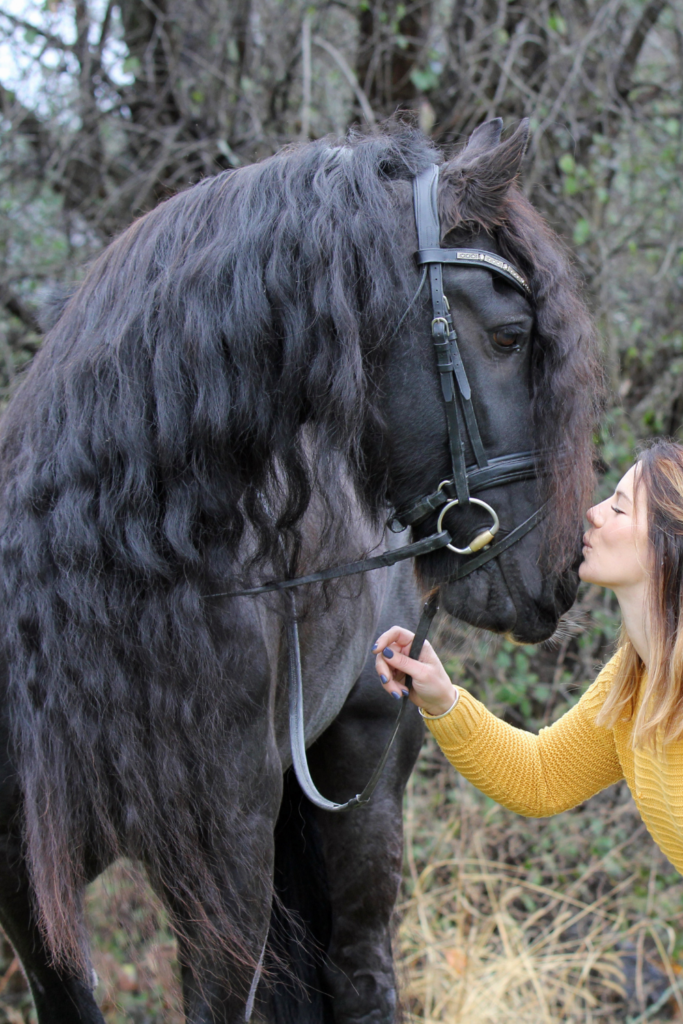
What makes a horse a warmblood?
Warmblood breeds are often developed by crossing hot-blooded breeds, known for their speed and agility, with cold-blooded breeds, known for their strength and sturdiness. The goal is to create a horse that possesses the desirable characteristics of both parent types, resulting in a well-rounded and adaptable equine partner.
Which breed of horse is not a warmblood?
Crossing a cold blood and a hot blood does not make a warm blood horse. For instance, if you crossed a Clydesdale and an Arabian you do not have a warm blood horse that you would be able to register as such. Warm blood horses have to be a certain breed of horse. Some of these breeds are:
- Dutch Warmblood
- Holsteiner
- Trakehner
- Oldenburg
- Swedish Warmblood
- Belgian Warmblood
- Westphalian
- Rheinlander
- Selle Français
- American Warmblood
- Danish Warmblood
- Bavarian Warmblood
- Brandenburger
- Swiss Warmblood
- Hanoverian
Which breed of horse is a hot-blood?
Hot-bloods may be the smallest group of horses, as the category refers to:
- Arabian
- Thoroughbred
- Akhal-Teke
- Barb
- Marwari
- Anglo-Arabian
Final thoughts on Cold Blooded Horse Breeds
Cold-blooded horses are draft breeds. They typically have a calm demeanor, are strong and have great strength and stamina to pull plows in the field. Today they can be seen giving wagon rides at fairs and some are used for trail riding. Knowing if a horse is cold, warm or hot blooded will give you an idea on its energy level and what it can be used for. If you are looking for a calm and strong riding or cart horse the cold-blooded breeds will be right for you.
I hope you found out everything you needed to know about the cold blooded horse breeds.
Understanding the temperaments of hot, warm, and cold-blooded horses is essential for selecting the right horse for a particular rider and activity. Each temperament has its own set of advantages and challenges, and matching the horse’s temperament with the rider’s skill level and intended use is crucial for happy partnership. Therefore, whether you’re seeking the spirited energy of a hot-blooded horse, the versatility of a warm-blooded horse, or the calm strength of a cold-blooded horse, there is a perfect equine companion for every rider. The diversity within these temperaments adds to the richness of the equestrian world, offering endless possibilities for riders of all levels and activities.
What is your favorite horse breed? I’d love to hear about the horses you have and what you like about them. Please leave a comment below.
Don’t forget to share and save a pin to Pinterest!
While you are here check out some other articles about horses:
